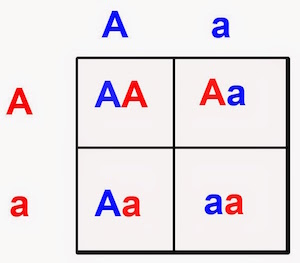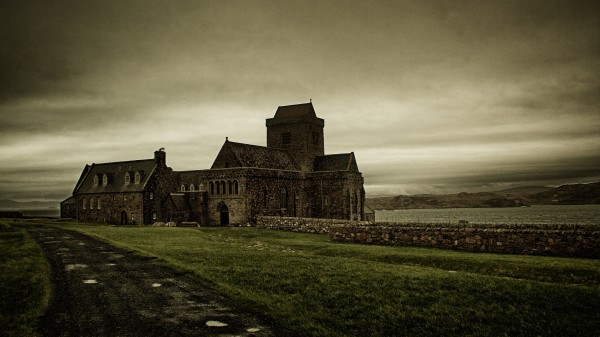I don’t have anything to write at the moment, but your time would probably be better spent listening to this anyway.
Evaluating the spread of Christianity, ancient and modern
This is a bit of follow-up to my earlier post, Is missionary work really harder now than it was in the middle ages? I could use a variety of examples from history, both ancient and even some relatively recent revivals or foreign mission success stories. However, for the sake of convenience, I’ll use the conversion of the fierce Picts in Scotland to Christianity by St. Columcille’s monks in the sixth century versus attempts to plant churches or strengthen Christian cultural institutions in the present-day secular modern United States.
Each of of the questions I’m going to ask can be viewed as having two variables. One could draw a 2×2 grid of four possible logical answers to the question and then evaluate each one. Along the way, I think we’ll find that some options can be eliminated easily, while others are cause for rigorous debate.
—–
1. Were the pagan Picts much more set in their sinful ways or is it our modern culture that is particularly hostile?
A. The Picts were really hard nuts to crack and so are the secularists in our culture today.
B. The Picts were really hard nuts to crack but our current secularists are actually a lot less resistant than they were. People now are much more open.
C. The Picts were actually surprisingly receptive pagans, unlike our extremely cynical and self-confident secularists today.
D. The Picts were actually pretty receptive pagans, and our current crop of pagans are not much different. We’re just whiners.
It’s a toss up as to rather I hear option B or C articulated by Christian leaders most of the time.
—–
2. The conversion of Ireland and Scotland was dramatically successful. Were the old pagans really receptive to the light of Christ, or were the old saints particularly special and amazing in their holiness and methods?
A. The old pagans were especially receptive and the Celtic saints weren’t anything special. Accounts of both are overblown.
B. The old pagans were really, really bad, but the Celtic saints were freakin’ amazing!
C. The old pagans were really, really bad, and the Celtic saints were kind of lame, but the Holy Spirit caused widespread miracles to happen regardless.
D. The old pagans were especially receptive, and the Celtic saints were really great too.
It’s hip and cynical to vote for option A on this one, but I still hear option B from people that like to hype things up.
—–
3. We seem to be having a lot of trouble spreading the gospel. Is it because we suck, or have we just been given an especially difficult task?
A. We suck at perpetuating the gospel, and our culture is really especially resistant to it. Bummer.
B. We do a decent job of communicating the gospel, but the culture is really especially resistant to it. It’s mostly their fault.
C. We suck at communicating the gospel, and the culture is about as receptive or not as any people group has ever been. It’s mostly our fault.
D. We are really good at communicating the gospel, and some in the culture are actually receiving it. It just LOOKS like they aren’t because current elites hate on Christianity in a very public way. That is, we are mistaken in our evaluation of the situation.
The Reformed typically tell a story that sounds like option B (our preaching kicks ass but they aren’t listening), and the Anabaptists and some left-leaning folks talk like option C is what is going on (we’re asleep at the wheel so we can’t blame them too much). Folks like Philip Jenkins, Lamin Sanneh, and some Chinese folks talk like option D is what is going on as soon as you step out of USA/Europe. I’d really like to believe them, but I’m still not sure at this point.
—–
4. Are we anything like the old saints?
A. The old Celtic saints were surely amazing, and actually, we are really spiritual and clever and hard-working too.
B. The old Celtic saints were amazing, but we’re a bunch of losers who play with our smart phones all day and wonder why nothing happens.
C. The old Celtic saints were nothing special, and actually we’ve come a long way since then. We’re way smarter and more theologically orthodox too.
D. The old Celtic saints were not that great, and neither are we. We both suck. Their success was kind of a fluke based on the weird circumstances surrounding the collapse of the Roman Empire.
As a young man, I heard a LOT of option B. I know a lot of my Reformed friends have too. Jim Elliot bios, Charismatic hagiographies of folks like Smith Wigglesworth, “Don’t Waste Your Life”, “Do Hard Things”, etc. I occasionally hear option C suggested, though it’s rarely put front and center.
—–
And one more, getting as close to the bone as possible.
5. How was the Holy Spirit at work in the past and today?
A. The Holy Spirit was doing stuff back then, but not now. Maybe he’s gearing up to burn the world with fire!
B. The Holy Spirit wasn’t really moving back then, but he is now. What happened back then was syncretistic nominalistic crap, but now we’re part of the new Remnant awesome!
C. The Holy Spirit wasn’t really moving back then, and he’s not now either. We’re just tossed on the waves by (probably meaningless) forces we can never understand.
D. The Holy Spirit was doing stuff back then, and he is now too. The wind swirls but has never stopped. We are not alone – not even a little bit.
I’ve heard A and B spoken of by quite a variety of figures. It’s really kind of funny how either of these can be worked into widely disparate theological frameworks. Option C is the default for secular nihilists. I’m for option D.
Is missionary work really harder now than it was in the middle ages?
I just finished reading Thomas Cahill’s How the Irish Saved Civilization. It’s a popular history book, that is it’s fun and easy to read rather than serious and scholarly. I really enjoyed it, but at the same time, feel that I must be bit skeptical about the optimistic nature of the story it tells. Despite the modern lingo and distance, it still strikes me as a hagiography. Yes, without the miracles found in the Voyage of Brendan the Navigator, and with more grounded references to the rest of Europe during the middle ages, but still a story camping out on all the good and especially cool things about the main characters. St. Patrick and St. Columcille’s faults are mentioned in passing and brushed aside while their accomplishments are amplified and celebrated.
I got the same feeling as I do reading Philip Jenkin’s history books. It’s all Christians doing awesome stuff all over the world that we forgot (or forget) about. The obvious next question is of course, how can WE Christians find such fabulous success in our own ministerial endeavors in the hostile modern West? All we can see are hurdles, road-blocks, and enemies on our way to accomplishing anything that looks even remotely like the spread of Celtic monasticism or the evangelism of the fierce Picts. And yet, fierce they were. Were they a tougher nut to crack than our own mixed neighboring cultures? Those early Scots that the monks at Iona reached out to where men who stripped off all their clothes, painted their bodies and ran screaming into battle, then went home and participated in orgies and human sacrifice. And here we are trying to preach to folks who cover their bodies with tattoos, work in the tech industry and then come home, order food in, and watch pornography. We both speak of Jesus. The former group listened intently, the latter will have none of it. Or so it seems. I ask again, is our missionary task now in the 21st century really harder than theirs was in the 6th century?
This is not a rhetorical question. I’m really asking. When you read traditionalists decry the creep of modernism, it seems like maybe things really are worse off for us – it really does. But I am skeptical of this complaint too. Is the literacy of pagans really so bad? What if the problem is with us. What if we have simply become too worldly and are of little interest to those we are trying to convert? The monks at Iona were not exactly trying to blend in, and people flocked to them in droves. It’s almost like we are hoping for a too-integrated society of – one where new converts drop their twenty-something sins in the trash and transform overnight into denim-skirt wearing homeschoolers with twelve children singing hymns around the dinner table. That stuff takes time – LOTS of time. Why do we get so frustrated when their steps toward Christ are slow or partial? Patrick, in preaching the gospel and establishing many churches, was apparently successful in eliminating human sacrifice and much petty local war, but not sexual promiscuity. Does that mean he was a failure? It would seem so by our current measures.
I think it’s possible that all of this puzzlement with history can be chalked up to the compression of time in our observation. We look at our own life in chunks of just a few years, but when studying the past, we will frequently make a strong narrative connection between people and events that are suddenly a century apart but on neighboring sentences on the printed page. How are things in our age? Someone studying us centuries from now will be able to write a saner story than we can. We are too excited about our brief triumphs and far to disillusioned and depressed about our setbacks. The government tightens the screw on us in some oppressive way and we are downtrodden and about ready to throw in the towel. But viewed from afar, that event may not even be worth mentioning in an account. Whole chapters would instead be devoted to the heroes in our midst, whom we likely don’t even recognize.
The above is largely speculation. I’m just trying to process it all. “Yes what happened back then was maybe cool, but now everything sucks and the Devil is #winning!!!” is not a convincing summary of our age (or any age) to me. I seek a better explanation – one that shows throughout how Jesus is King.


